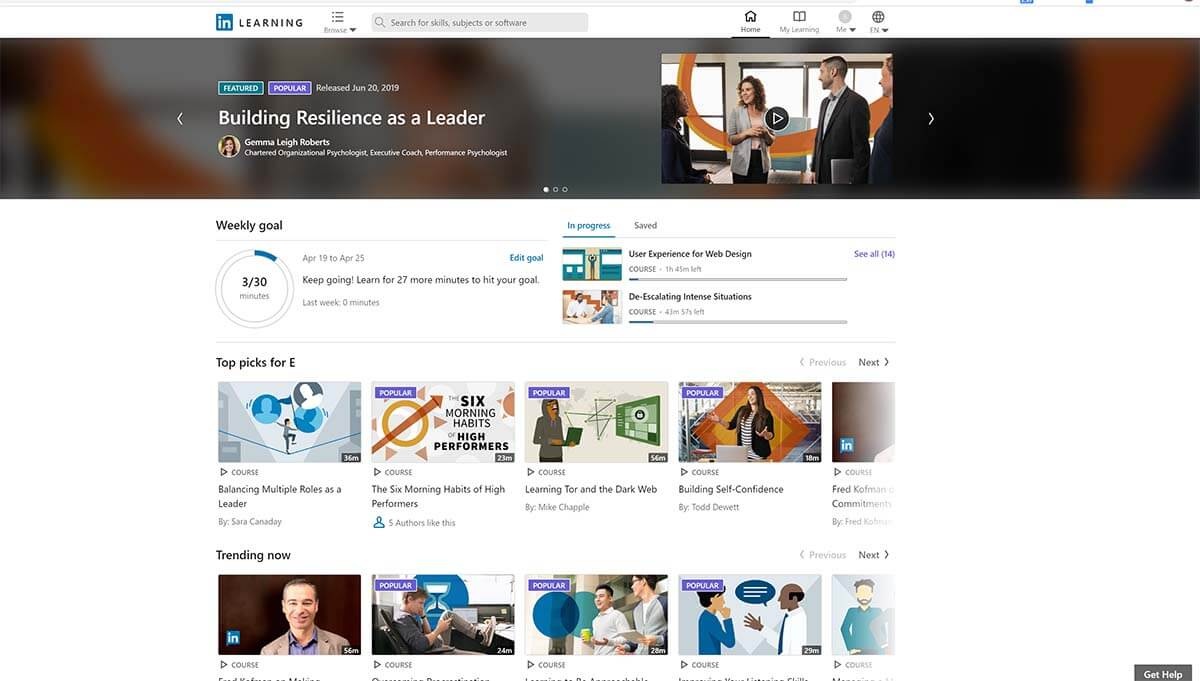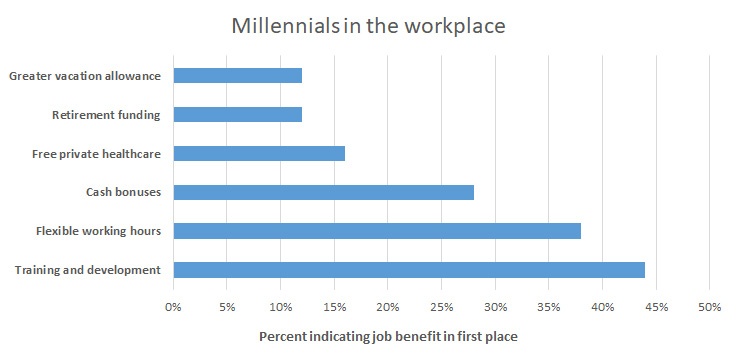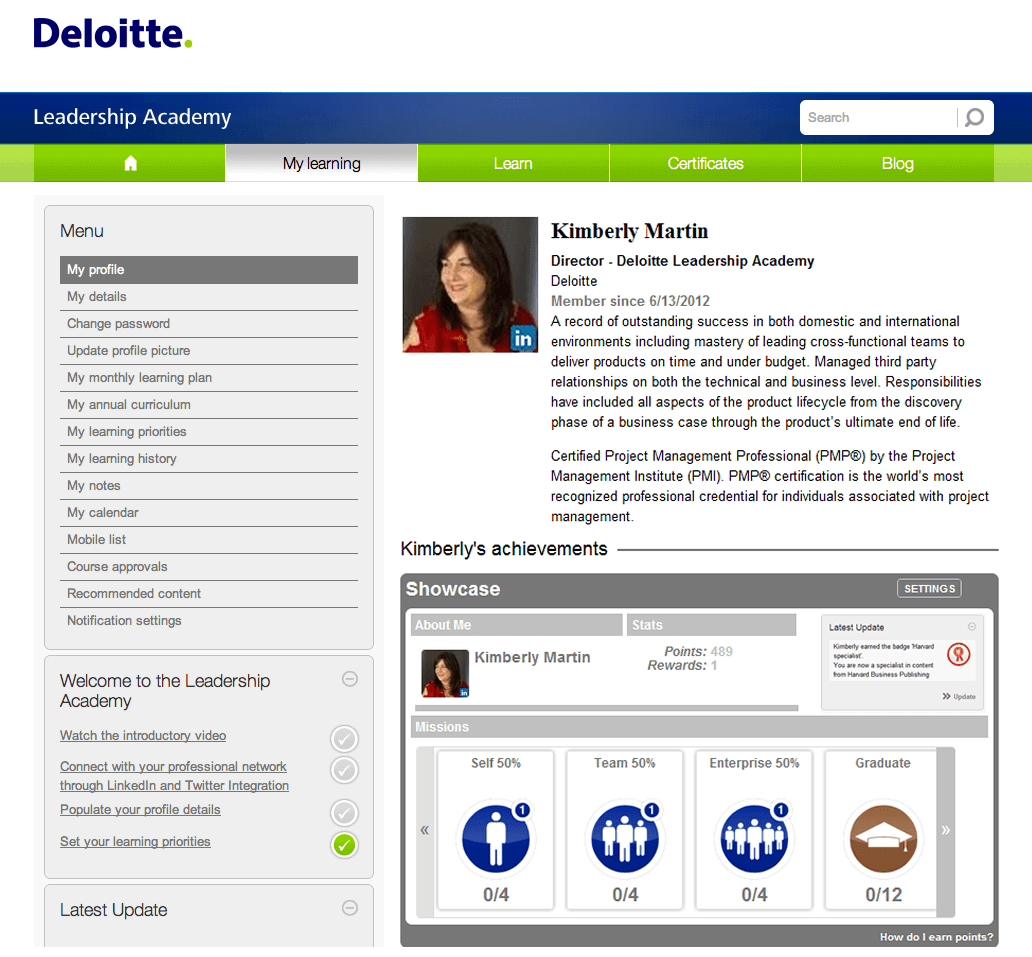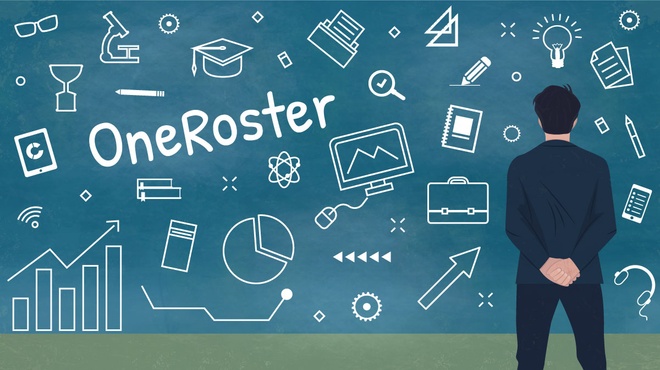Learning Experience Platforms: Do You Need One?

A Learning Experience Platform is a relatively new addition to the EdTech software development. There is still a certain skepticism about it, but when used wisely, LXPs can be invaluable to a growing business. In this article, we will explain what these systems are, when should you use them, and how to gain the most from them.
What Is an LXP?
LXP (sometimes LEP) stands for the “Learning Experience Platform”. While mostly similar to the widespread learning management systems (LMS), LXPs have a major difference: an artificial intelligence (AI) that curates the learner’s training process.
LinkedIn Learning is one example of this approach. It has access to the LinkedIn profiles of its users and can recommend content depending on the listed skills, groups they subscribe to, job position, and more.The machine learning algorithms also track the courses a user takes and uses that to improve the curation.

LinkedIn Learning Platform Homepage, source
There are other elements that are typically present in an LXP:
-
Flexible UI. The common phrasing is “Netflix-like” — just like a streaming platform shows movies and series, an LXP demonstrates learning courses. The interface can be easily modified by the users to fit their preferences.
-
Third-party system integration. One of the advantages of the LXP approach is using content from multiple sources. That can be internally stored lessons, YouTube videos, MOOCs — anything. What’s more, interactions with third-party content can be tracked.
-
On-demand training. Learning experience platforms typically contain bite-sized lessons that can answer specific questions a user might have (e.g. “how do I make macros in Excel). This helps learners get help with their work and learn something new in the process.
LXPs have another hidden benefit — workforce retention. Modern employees place personal improvement very highly on their list of priorities when choosing a workplace.

Millennials in the Workplace, source
There are many LXPs on the market: Degreed, EdCast, the above-mentioned LinkedIn learning, and more. In addition, you can always have a custom system developed if none of the existing ones are what you’re looking for.
Do You Need an LXP?
LXPs are all about user experience and continual learning. They do this very well but can be an overkill for a company that has different needs.
For example, doctors in the USA have to keep learning throughout their whole career — this is a legal requirement. Yet at the sametime, the medical professionals themselves are overworked and can treat extra learning as a chore. In this case, an LXP can kill two birds with one stone: provide a way for the physicians to earn their credits and ease the burden placed on them.
Another example could be a multinational enterprise. On such a scale, human capital development has a pronounced effect on the bottom line — companies like SAP and Deloitte can attest to that. The latter, for example, has a “Leadership Academy” that helps their executives constantly improve their skills. Learning Management Systems could streamline this kind of training, helping learners choose courses that would benefit them the most.

Deloitte Leadership Academy Website Screenshot, source
Or we can take a look at a coffee shop. If the owner’s only eLearning need is to train his baristas to use the equipment, a learning management system would be more than enough. The extra features included in an LXP (Machine learning, third-party integrations, etc.) would only cause extra expenses without bringing much in return.
To summarize: learning experience platforms are the best for continuing education and on-the-job development.But for simple onboarding and compliance training, an LMS can be enough.
What Are Your Options
So you have decided that you need an LXP. Now there are two major roads open to you:
1. Boxed Systems
The LXPs are a relative newcomer to the market — it has been less than ten years since the concept was first introduced. But there already are a number of products that fit the niche, not to mention the learning management systems’ that include some of the LXP functionality.
Here’s when your best bet is a boxed LXP:
- You need learning fast. Just purchase the necessary number of licenses, upload the content, and you’re ready to go.
- You have a tight budget. Buying a SaaS subscription requires a relatively small initial investment, unlike developing a new system from scratch.
- You don’t want the responsibility. The vendor is fully responsible for a SaaS product’s stability. You just need to pay for your license.
2. Custom LXPs
Building a new system from scratch, whether with your in-house team or an outside vendor, is a hard and complicated process. However, a custom LXP has several major advantages over its boxed counterparts.
Here’s when you should go for a turnkey system:
- You have unique courses. If you want to use the courses that use rare instructional design approaches (e.g. game-based learning) or use special kinds of content (e.g. augmented and virtual reality), boxed systems are unlikely to be a fit. A custom system, however, can be built to host whatever you want.
- You need total control. This is a matter of both security and personal preference. Firstly, if a vendor of a boxed LXP goes out of business, they take your system down with them. Sometimes the vendor can delete your courses from their system even if you are late with your monthly payments. Your own system carries no such risk. Secondly, a unique system is unknown to hackers and doesn’t have the vulnerabilities of a widespread one. Finally, you can connect your custom LXP to any systems you want and use any content you want, without regards to the vendor’s policies.
- You are playing a long game. A custom system has a better long-term ROI than a ready-made one due to lower operating costs. Moreover, it is a valuable piece of intellectual property that can add to the valuation of a public (or soon-to-be public) company.
In short, if you are small, don’t have time to wait, and have a tight budget, go for a boxed LXP. But a large company that can afford a long-term investment in an eLearning program would better be suited by a turnkey system.
Important Features
Whether you are choosing a ready-made system to buy or are planning your future custom LXP, here’s what is important to have (besides the course management, grading, and analytics — these are obvious).
Gamification
eLearning gamification means using game elements in a non-game environment. Examples include giving users experience points and levels for completing assignments, badges for special achievements, leaderboards, and more.

Mondly App Leaderboard, source
Gamification is proven to improve both the learner’s knowledge retention and motivation, so it is important to use its benefits in your system. Note that just slapping random badges and rewards might cause a cobra effect making the situation worse.
Standards Compatibility
Content variety is important to realize the full potential of an LXP. That is why you should look for the ones that support the latest eLearning standards, mainly xAPI and LTI. This way your system will be able to play any kind of content prepackaged with one of these standards and more.
xAPI (Experience API, also “Tin Can API”) allows for both content packaging and efficient monitoring. You don’t really have to have an LMS or LXP to work with it, it is mobile-friendly, and can work with older SCORM-packaged content.
LTI (Learning Tools Interoperability) will let your system stream content from third-party websites without your users logging in on them.
Altogether this will grant your users far more opportunities.
Social Learning
This is more of a feature set than a separate feature, but still important to mention. Social learning covers all the functions that have your users communicate with each other, whether for competition, or cooperation.
Examples of it can include a forum, a leaderboard, or team-based exercises that can’t be completed by one person.
Conclusion
LXPs are great for continuing education thanks to the artificial intelligence that suggests the best courses for each specific user. However, they might be unnecessary for smaller companies that have different training needs.
If you decide that an LXP is something that would help your company, feel free to talk to us. Firstly, it is free — we can give you an initial consultation at no cost.Secondly, we have over a decade of experience in the eLearning market and can build you a custom LXP on time and on budget. Finally, we have cut our teeth on AR/VR technology, so if your eLearning course calls for this kind of content, look no further.



